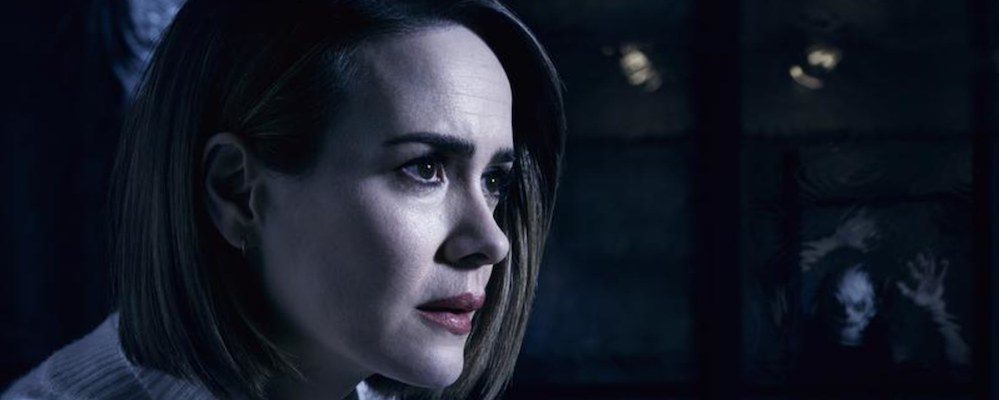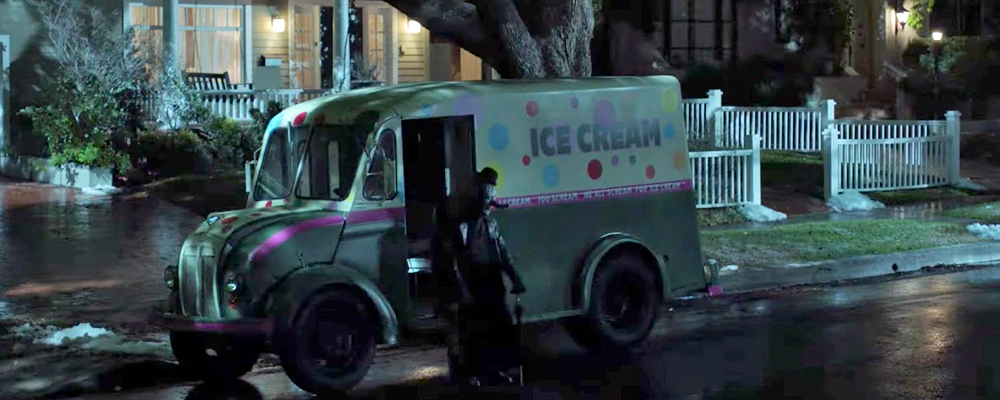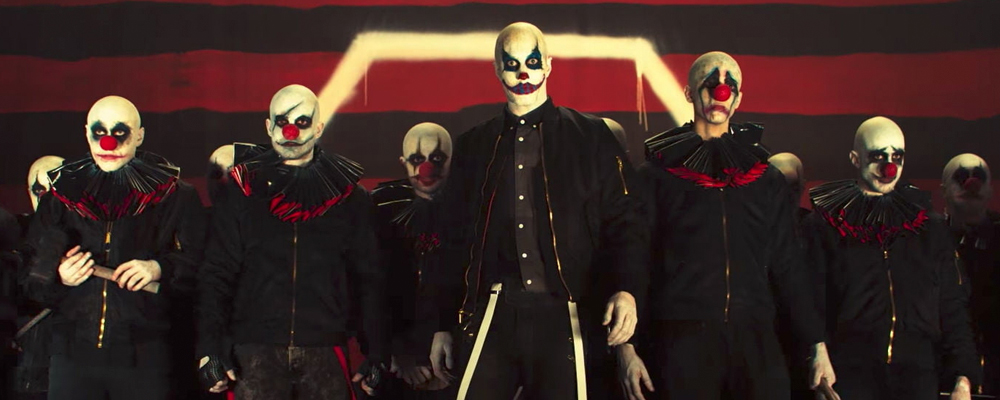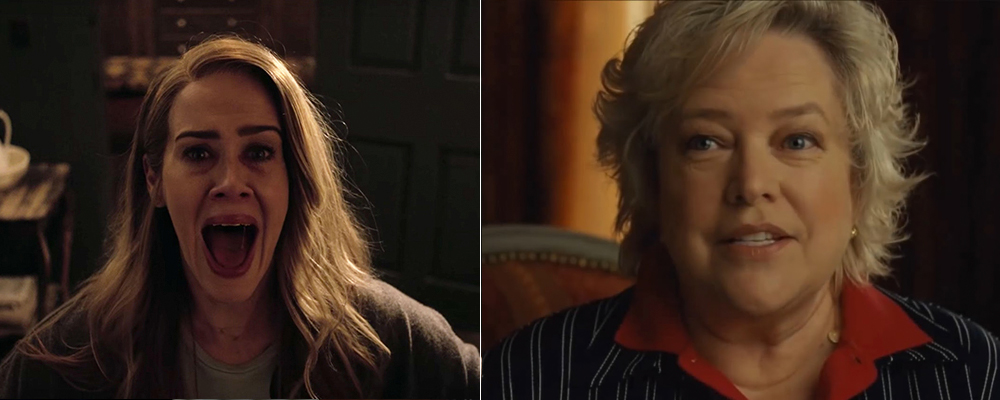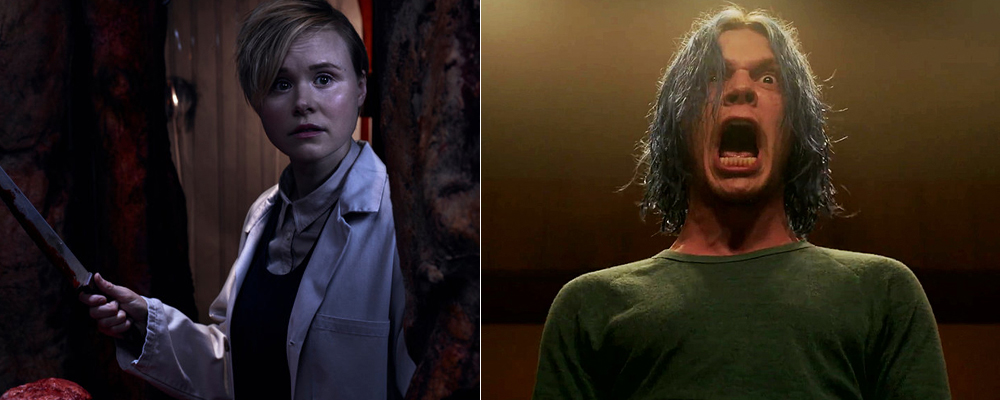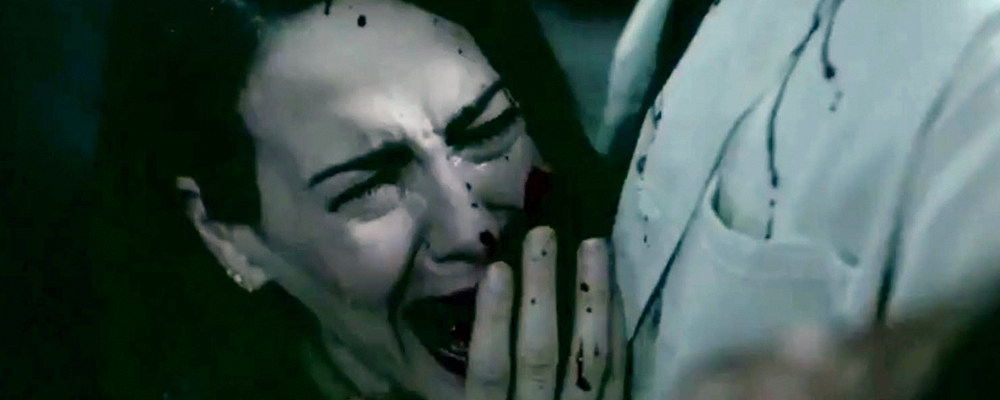‘American Horror Story: Cult’ Promises Most Sociopolitically Relevant Season Yet
Alex Aronson
Season seven of the hit FX horror anthology, “American Horror Story” opens with an all too familiar montage consisting of the media footage surrounding the 2016 presidential election between (now) President Donald Trump and Senator Hilary Clinton.
The first episode, titled “Election Night,” opens with the results of the 2016 presidential election. Ally Mayfair-Richards (Sarah Paulson) and her successful restaurant owner wife, Ivy (Alison Pill), watch the results announced on the television in utter horror and dismay. Also having difficulty accepting the outcome is Winter (Billie Lourd, “Scream Queens”), a former Vassar attendee who dedicated her time and energy to Clinton’s failing campaign.
On the opposing side, Kai (Evan Peters), a blue-haired basement dweller, finds unhinged solace in the results. Hurt by Trump’s win, Winter questionably enters into a pact with Kai and lands a job as Ally and Ivy’s nanny to their young son. The dynamics lay the groundwork for an interesting web destined to explode by season’s end.
Aside from the horrors brought upon from the night’s election results, Ally suffers deeply from coulrophobia. Terrorized by her fear of clowns, Ally begins to unravel. This is promising, with Emmy-winner Paulson at the helm of her collapsing sanity. If anyone is capable of capturing the failing psyche, it is evidentially Paulson. Any fan of “AHS” remembers the tortured existence of Lana Banana in “Asylum.” “Cult” seemingly promises a similar opportunity for greatness.
Building upon the pre-existing “American Horror Story” world, “Cult” saw the return of a familiar face (or lack-thereof), with Twisty the Clown. Originally introduced in 2014’s “American Horror Story: Freak Show,” Twisty is a serial killer clown who terrorized a small Florida town until his death in the 1950s. In contemporary “Cult” Twisty stands among some of the most infamous serial killers in American history – sickly immortalized in comic books and action figures. Ally’s son, Oz, is perhaps a little too interested in the clown’s disturbing history.
“Just stop Tweeting” Ally remarks as she stares at her phone at President Donald Trump’s Twitter account in utter and sincere frustration. The scene will play familiar to some. However, a political undertone isn’t the only way that “American Horror Story” is staying socially and culturally relevant this season. With public interest in clowns at an undeniable peak, due largely in part to the highly anticipated upcoming Warner Bros. release of “It,” the sadistic murderers donning colorful clown masks is all the more pertinent. Merely one episode into the season, and “American Horror Story: Cult” is perhaps providing the most germane commentary in its entire seven-season duration.
One thing that’s absent from this season is the fantastical element of ghosts or urban legends. Instead, the horror is all based in reality. Whether it be the president, your neighbor, or a maniac clown, this season’s threat is very human – finding inspiration from horror home invasion films like “The Strangers” and “You’re Next,” as murderous clowns invade a home leading to an all too bloody scene. Simply put, humans are the greatest threat.
While last season, subtitled “Roanoke,” provided a refreshing departure – trading in the series’ traditional sleek cinematic aesthetic for a more raw found footage exterior – “Cult” refreshingly returns to its roots providing sharp camera direction helmed by executive producer Bradley Buecker. Also notable is the pulse-pounding score, which drones over the wet Michigan locale. Immediately, “Cult” is fresh, promising a season more relevant than ever before.
“American Horror Story: Cult” premiered Sept. 5 and airs Tuesdays at 10 p.m. on FX.

